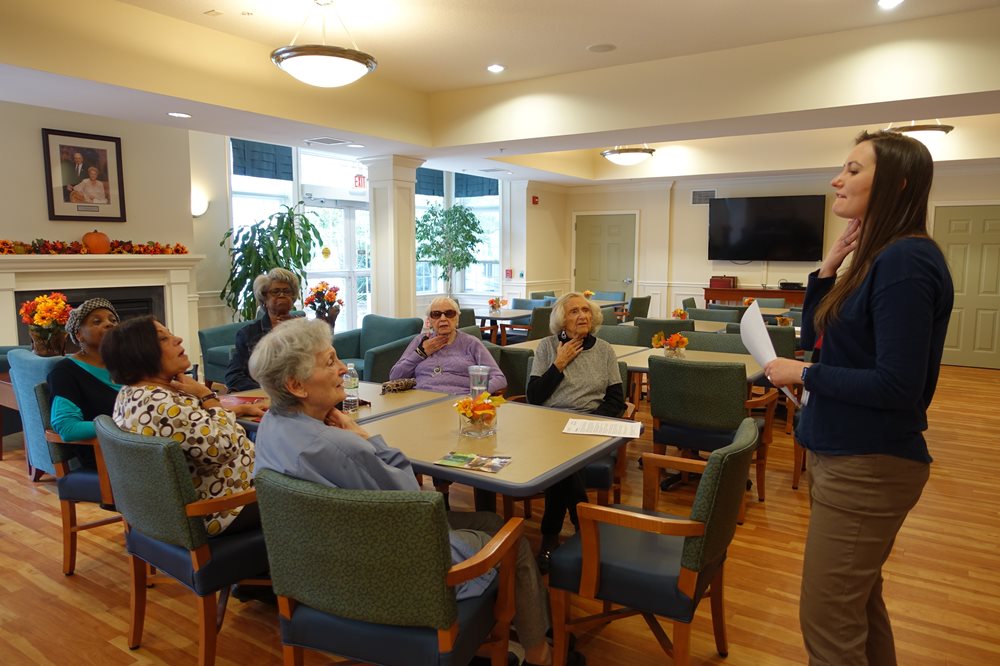Trouble Swallowing? Understanding Dysphagia
Dysphagia, or difficulty swallowing, is when moving food and liquids through the mouth and to the stomach can be painful and can make swallowing impossible. If you have a swallowing disorder, you may have difficulty or pain when swallowing whereas some people cannot swallow at all. Others may have trouble swallowing liquids, foods, or saliva, which can make it hard to eat. Often, it can be difficult to take in enough calories and fluids to nourish your body.
 Swallowing difficulty is a consequence of many medical conditions, including stroke, chronic diseases that affect the nervous system and surgeries that affect the head and neck. But swallowing difficulty is also associated with aging. According to the National Foundation of Swallowing Disorders, it has been estimated that as many as 20% of individuals over the age of 50 years, and most individuals by the age of 80 years, experience some degree of swallowing difficulty. Some swallowing disorders affect up to 15 million adults in the United States.
Swallowing difficulty is a consequence of many medical conditions, including stroke, chronic diseases that affect the nervous system and surgeries that affect the head and neck. But swallowing difficulty is also associated with aging. According to the National Foundation of Swallowing Disorders, it has been estimated that as many as 20% of individuals over the age of 50 years, and most individuals by the age of 80 years, experience some degree of swallowing difficulty. Some swallowing disorders affect up to 15 million adults in the United States.
As our society revolves around food and meals, for someone with dysphagia life can be difficult. Dysphagia can cause depression, low self-esteem, poor social performance, and increasing health risks such as aspiration pneumonia.
Dysphagia can lead to complications, which include:
- Malnutrition, weight loss, and dehydration. When you have trouble swallowing, it can be hard to get all of the fluids and nourishment you need.
- Pneumonia. When you try to swallow, sometimes food or liquid may accidentally enter your airway. When this food or liquid goes into your lungs, it can introduce bacteria that cause pneumonia. This is called aspiration pneumonia. Pneumonia is a serious illness, especially in senior citizens. Dysphagia is the leading cause of aspiration pneumonia.
- Choking. If food gets stuck in your throat, you may choke. If it completely blocks the airway, you won’t be able to breathe and you could die.
If you have symptoms of dysphagia or aspiration, you need to be checked. A speech-language pathologist (SLP) may start by asking you about your health, past illnesses, surgeries, and your swallowing problems. The SLP will also look at your teeth, lips, jaws, tongue, and cheeks. They may also check how you swallow different consistencies of liquids and foods. They can do special tests, if needed. The SLP can watch how you swallow using:
- A barium swallowing study, which involves the patient eating or drinking items containing barium. The process is viewed on an X-ray to see any coordination issues with the mouth and throat muscles.
- An endoscopic assessment, in which a lighted scope is inserted into the patient’s nose so swallowing can be observed on a screen.
 Treatment plans vary depending upon the type and cause of swallowing disorder. The SLP can work with you to improve how you swallow. Depending on the specific type of your dysphagia, this might include:
Treatment plans vary depending upon the type and cause of swallowing disorder. The SLP can work with you to improve how you swallow. Depending on the specific type of your dysphagia, this might include:
- Changing your diet. This might mean eating softer foods, using thickening liquids or having no liquids at all.
- Changing your position while eating. This might mean eating upright, tilting your head back, or bending your neck forward.
- Practicing special exercises to strengthen your lips and tongue.
- Learning special swallowing techniques.
As you recover, you might need to use fewer of these steps. Dysphagia after a stroke may greatly improve with time.
If you or a loved one has difficulty swallowing, contact the Speech-Language Institute today.